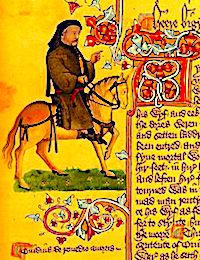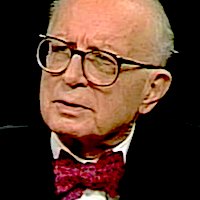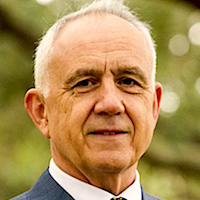

Tao Te Ching

Ellesmere Manuscript
Canterbury Tales
Written as a story-telling contest, The Canterbury Tales became one of English literature's most important works, Chaucer's most famous book, and his most skillful criticism of English society and religion. By telling tales from so many different class, religious, and political perspectives; he created a powerful matrix for pluralism, relativity, and an openness to different points of view. A main theme that cuts across characters from vastly different social and religious classes is what we describe as spiritual materialism. Although the diverse personalities are all on a "spiritual pilgrimage," the story constantly reveals their self-serving motivations.
Quotes from Canterbury Tales
“all goes to show that marriage is a misery and a woe”
Chapters:
Comments: Click to comment
“And therefore, at the king's court, my brother,
Each man for himself, there is no other.”
Chapters:
Comments: Click to comment
“But I can say for certain, it's no lie,
God made us all to wax and multiply.
Take King Solomon of long ago;
We hear he had a thousand wives or so.
And would to God it were allowed to me
Te be refreshed, aye, half so much as he!”
Chapters:
Comments: Click to comment
“Christ was a maid, and yet shaped like a man,
And many a saint, since this world began.”
Chapters:
Comments: Click to comment
“Come where thou need not to learn from me,
For thou shalt, by thine own experience,
Be able in a professorial chair to lecture on this subject
Better than Virgil, while he was alive”
Chapters:
Comments: Click to comment
“For talk of medicine and surgery;
For he was was grounded in astronomy...
Ready he was with his apothecaries,
To send him drugs and all electuaries...
And yet he was right chary of expense;
He kept the gold he gained from pestilence.”
Chapters:
Comments: Click to comment
“Friends, each one the other must obey [for] love will not be constrained by mastery; both men and women by nature love their liberty and not to be constrained and so both become servant and lord.”
Chapters:
Comments: Click to comment
“He says that to be wedded is no sin;
Better to marry than to burn within.”
Chapters:
Comments: Click to comment
“One shouldn't be too inquisitive in life—either about God's secrets or one' wife.”
Chapters:
Comments: Click to comment
“She'd been respectable throughout her life,
With five churched husbands bringing joy and strife,
Not counting other company in youth;
But thereof there's no need to speak, in truth.”
Chapters:
Comments: Click to comment
“This friar boasts that he knows hell, and God knows that it is little wonder; Friars and fiends are seldom far apart.”
Chapters:
Comments: Click to comment
Related Lineages (0 lineages)
Quotes about Canterbury Tales (3 quotes)

“Chaucer's Canterbury Tales, written in the last decade of his life, marks a surprising new vision, a work that would outshine all his others... [His] pilgrims are not merely 'representative,' each has a distinctive face and figure with his very own variety of impatience and enthusiasm... Chaucer himself is always there with self-disparaging comments, a slightly obtuse and puzzled witness to the human condition.”
Comments: Click to comment

“as Geoffrey Chaucer wrote The Canterbury Tales, he also launched a literary search for the elusive Genghis Khan and his daughter... In "The Squire's Tale," Genghis Khan's daughter, the fictional Canace, acquired magical power over humans and animals; she communicated with birds and knew the use of every plant.”
Comments: Click to comment

“Chaucer's characters live age after age. Every age is a Canterbury Pilgrimage; we all pass on, each sustaining onr of these characters; nor can a child be born who is not one of these characters of Chaucer.”
Comments: Click to comment
Comments (0)